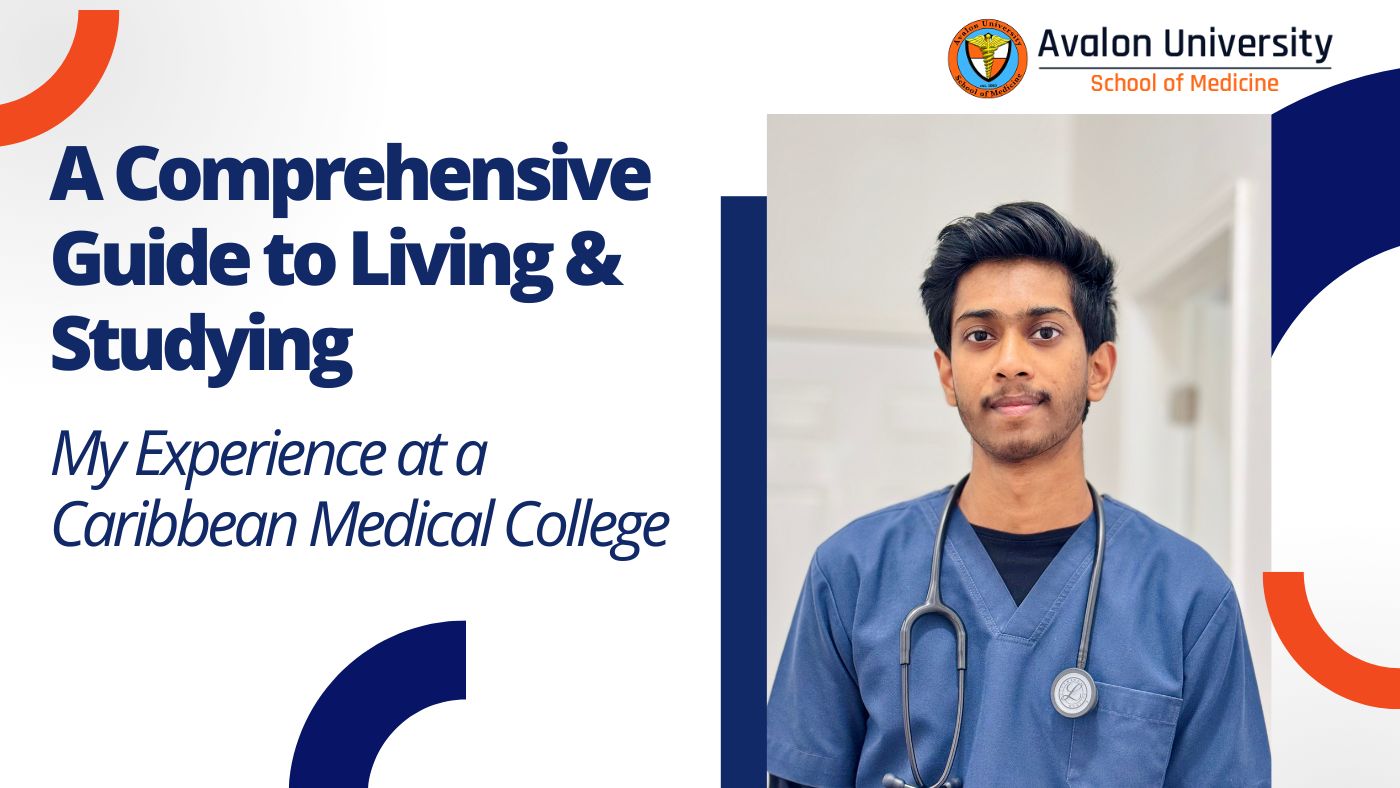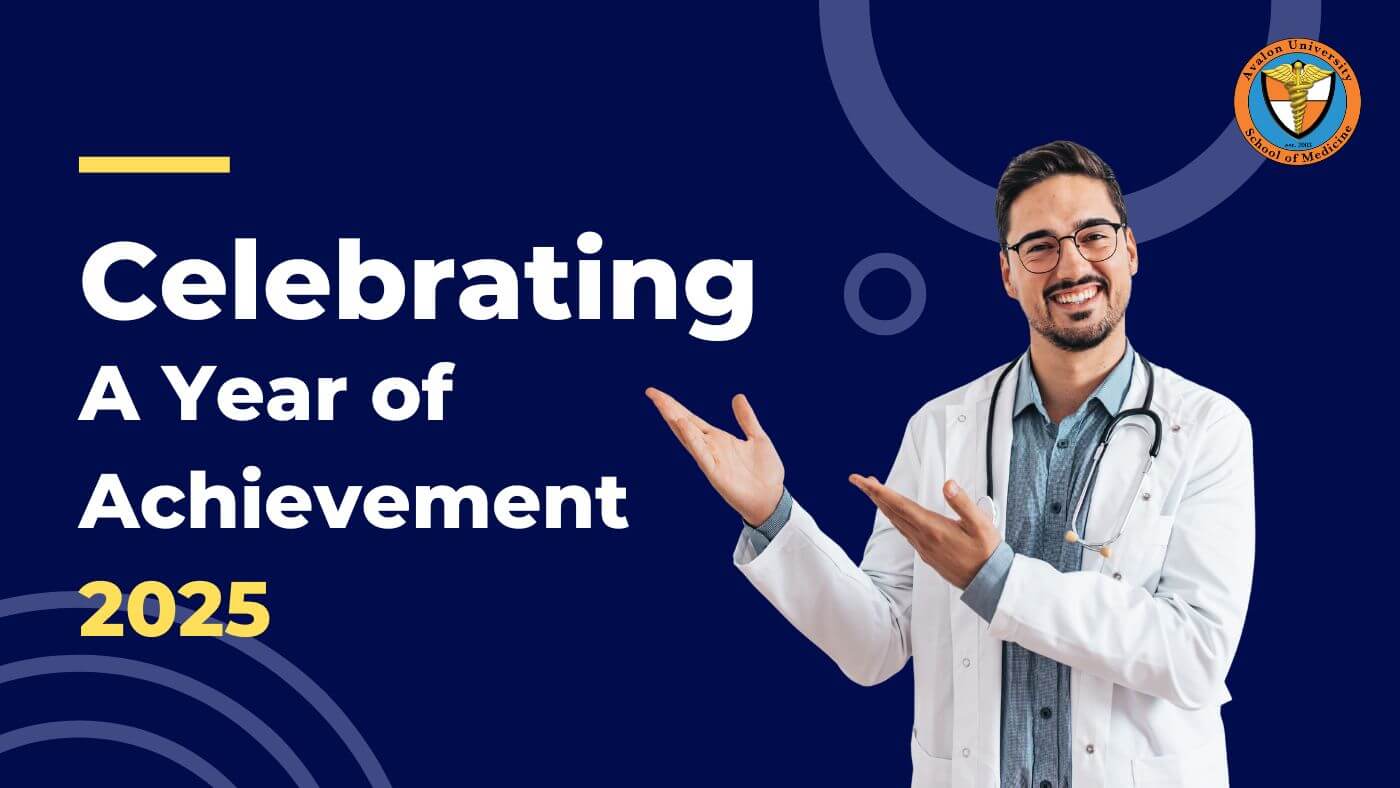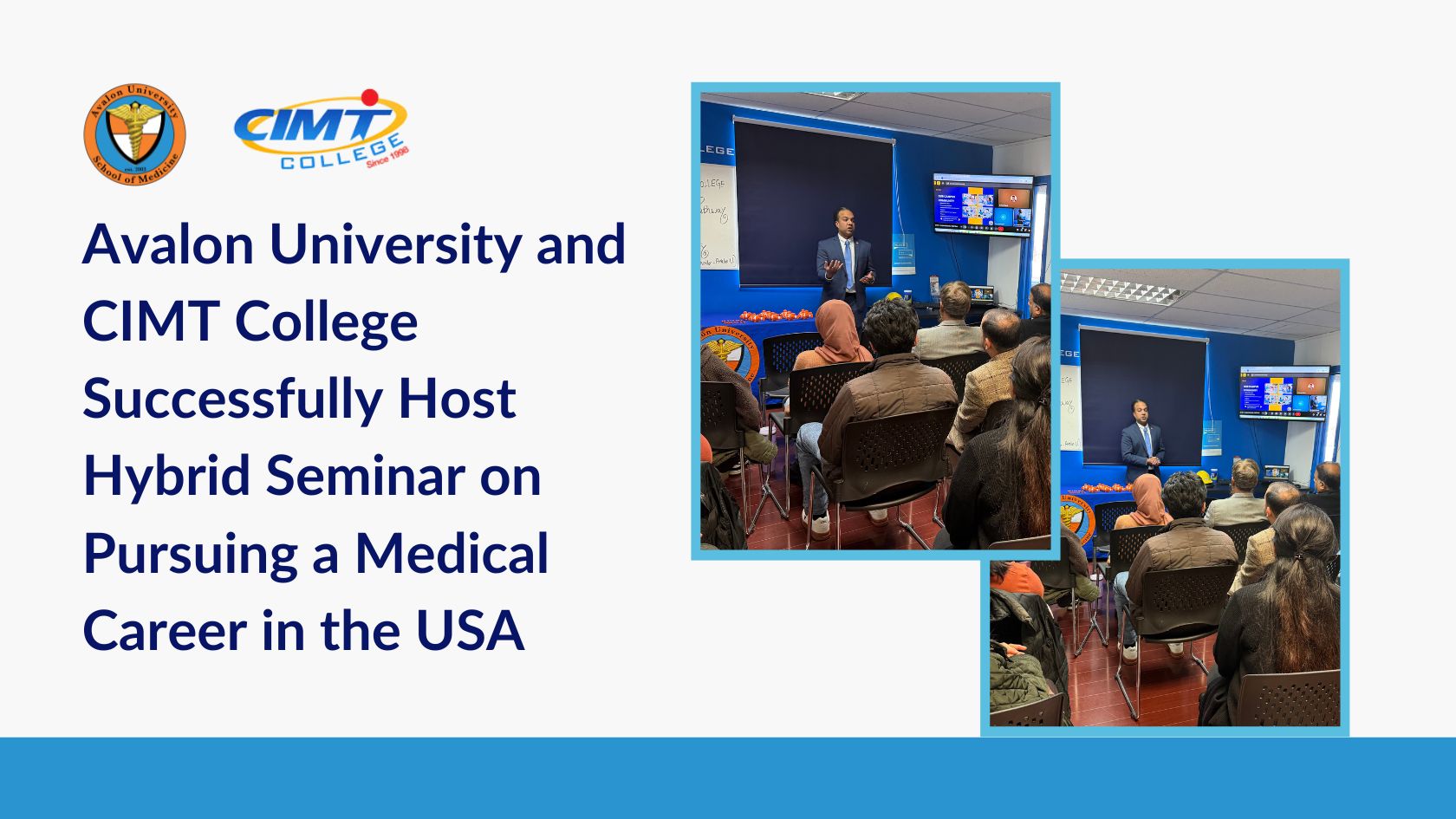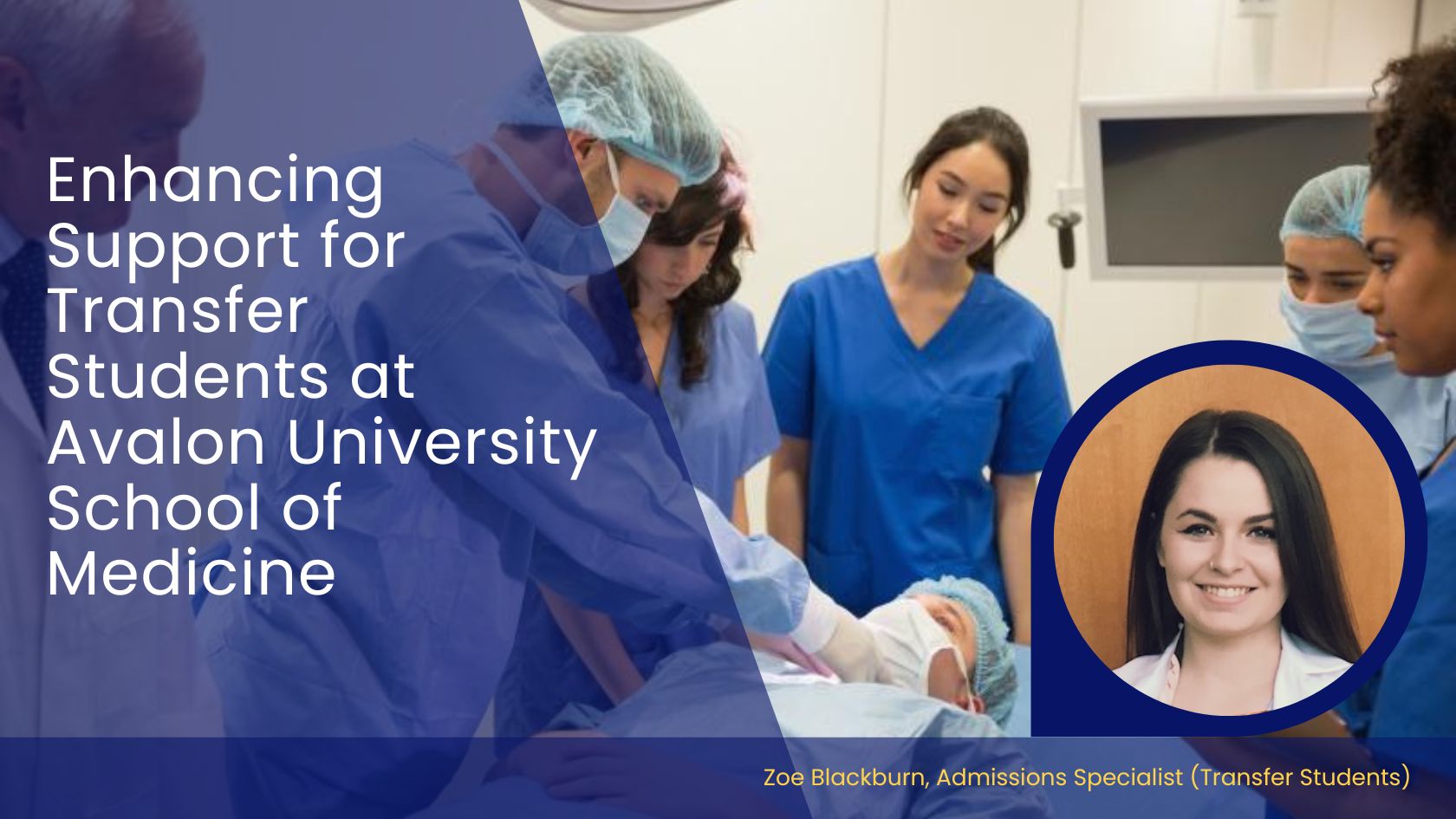– Blog by Sharon Ansil Nagrajan
My name is Sharon Ansil Nagarajan, I am a medical student at Avalon University School of Medicine, a Caribbean medical school. Here is my guide to living and studying on a Caribbean island!
Embarking on a journey to study medicine at a Caribbean medical college is both exhilarating and filled with challenges. As someone who has navigated this path, I understand the challenges and rewards that come with it. In this comprehensive guide, I aim to provide a roadmap for prospective students, offering insights, practical advice, and personal experiences to help them make the most of their time at a Caribbean medical college.
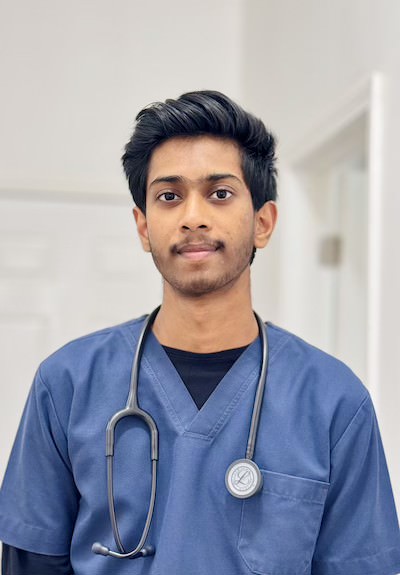
Preparing for the Journey
- Choosing the Right Institution:
Before engaging on this journey, it’s crucial to conduct thorough research on Caribbean medical colleges. Factors to consider include accreditation, curriculum structure, faculty expertise, clinical rotations, residency match rates, and student support services. Websites, forums, and alumni networks can be valuable resources for gathering information and insights. - Navigating Visa and Immigration:
As an international student, securing the necessary visas and navigating immigration requirements was a daunting task for me. It is essential to familiarize oneself with the visa application process and gather all the required documents. Starting this process early and staying organized can help alleviate stress and ensure a smooth transition without any delay. If you have more questions, always feel free to seek guidance from the University’s Administrative Office. - Financial Planning:
Studying at a Caribbean medical college requires a significant financial investment. You should always carefully assess tuition costs, living expenses, health insurance, and other miscellaneous fees.
Developing a realistic budget and exploring scholarship, loan, and financial aid options can help mitigate financial burdens and ensure a sustainable academic journey.
Settling In
- Orientation and Campus Life:
Attending orientation sessions is vital for acclimating to campus life, getting acquainted with campus facilities, policies, understanding academic expectations, and accessing essential resources. Additionally, embracing campus culture, participating in student organizations, and engaging in extracurricular activities can foster a sense of belonging and enhance the overall college experience. - Housing Options:
Exploring housing options early and seeking recommendations from current students can help make informed decisions. Avalon University, located on the island of Curacao in the Caribbean has an on-campus dormitory, which is where I stayed during my Basic Sciences. Additionally, Curacao offers plenty of budget friendly off-campus apartments options for new to the island students. So it is essential to do your research. Make sure you consider factors such as proximity to campus, safety, amenities, and cost when choosing the type of accommodation. - Cultural Adjustment:
Adjusting to a new culture and environment can be both challenging and enriching. It’s essential to approach cultural differences with an open mind, curiosity, and respect. Building relationships with local residents, immersing oneself in community activities, and exploring the rich cultural heritage of the Caribbean can facilitate cultural integration and enhance the overall college experience.
Navigating Academics
- Understanding the Curriculum:
Avalon offers a comprehensive medical curriculum that combines classroom instruction with hands-on clinical training. Everyone should familiarize themselves with the curriculum structure, course requirements, and academic policies.- Time Management:
- Create a Schedule: Develop a structured study schedule that allocates time for classes, study sessions, and relaxation.
- Set Goals: Set achievable short-term and long-term academic goals to keep yourself motivated and focused.
- Study Strategies:
- Active Learning: Engage in active learning techniques such as summarizing notes, teaching concepts to peers, and participating in group discussions.
- Practice Questions: Practice questions with Qbanks (Uworld, Amboss etc) and NBME self-assessments to familiarize yourself with the exam format and test your knowledge.
- Visual Aids: Utilize visual aids such as diagrams, charts, and mnemonics to aid in memorization.
- Utilize Resources: Take advantage of textbooks from the library, online resources, and academic support services provided by the school.
- Time Management:
- Clinical Experience:
Clinical rotations play a crucial role in medical education, providing students with invaluable real-world experience and exposure to different medical specialties. Prospective students should inquire about the availability of clinical rotations, the diversity of clinical sites, and opportunities for hands-on learning.Actively engaging with patients, observing medical procedures, and seeking feedback from supervising physicians can enrich the clinical learning experience. - Maintaining Professionalism:
As future healthcare professionals, it is important to adhere to high standards of professionalism, integrity, and ethical conduct. Respectful communication, collaboration with colleagues, and maintaining patient confidentiality are essential aspects of professional behavior. Embracing a lifelong commitment to learning, self-reflection, and personal growth can cultivate professionalism and contribute to success in medical practice.
Balancing Life and Studies
- Prioritizing Self-Care:
Maintaining physical, emotional, and mental well-being is crucial for academic success and personal fulfillment. It is really important to prioritize self-care practices such as regular exercise, adequate sleep, healthy eating habits, and stress management techniques. Seeking support from friends, family, mentors, and mental health professionals can also provide valuable emotional support during challenging times. - Exploring Extracurricular Activities:
Avalon offers numerous opportunities for personal and professional development outside the classroom. You should explore extracurricular activities such as research projects, volunteer initiatives, leadership roles, and community service opportunities. Engaging in diverse interests and hobbies can foster creativity, resilience, and a well-rounded approach to medical education. - Promoting Mental Health Awareness:
The demanding nature of medical education can take a toll on students’ mental health and well-being. It’s essential to cultivate a culture of openness, empathy, and support within the medical school community. Promoting mental health awareness, destigmatizing help-seeking behaviors, and providing access to counseling services and peer support groups can create a supportive environment for us students to thrive.
Planning for the Future
- Preparing for Licensing Exams:
Successfully passing licensing exams such as the United States Medical Licensing Examination (USMLE) is a critical milestone for aspiring physicians. Develop a comprehensive study plan, utilize review materials and resources, and seek guidance from faculty mentors and exam preparation programs. Consistent practice, self-assessment, and perseverance are key to achieving success on licensing exams.Remember “Hard work pays off”. - Navigating the Residency Match Process:
Securing a residency position is a significant milestone in the journey to becoming a practicing physician. It is better to begin preparing for the residency match process early, exploring different specialties, gaining clinical experience, and building a competitive residency application portfolio. Seeking mentorship, networking with residency program directors, and participating in mock interviews can enhance chances of matching into desired residency programs.
My medical school experience in the Caribbean has been transformative. It is indeed an experience like no other. It’s a journey filled with challenges and growth that shape you into the healthcare professional you aspire to be. From rigorous academics to invaluable clinical exposure, it has equipped me with the knowledge, skills, and resilience needed for a fulfilling career in medicine. I hope my ongoing journey serves as inspiration and guidance for others embarking on this rewarding path.

